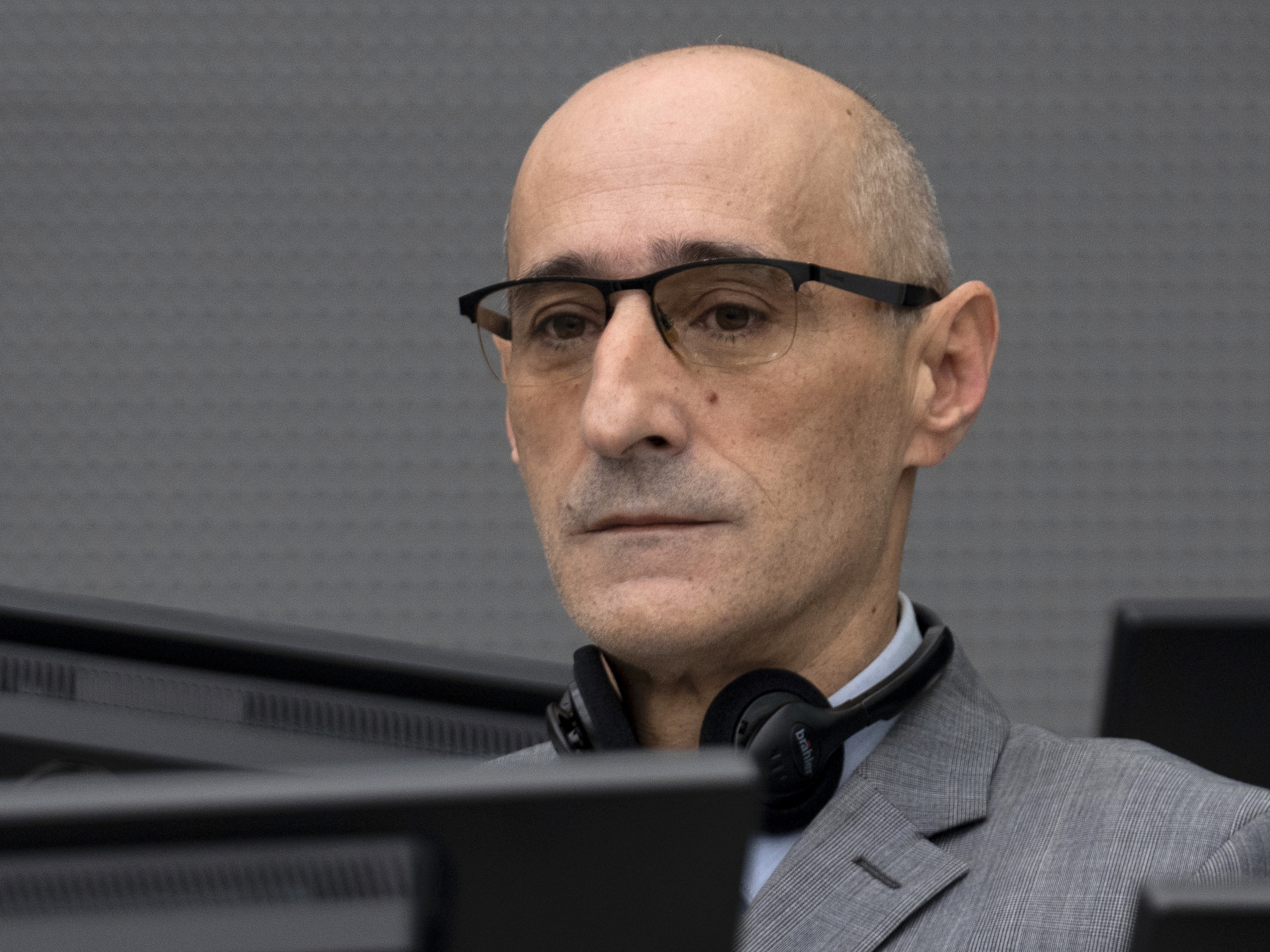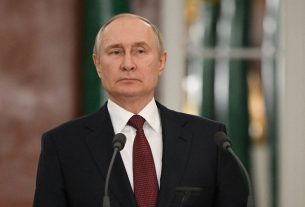Judges at the Kosovo tribunal have convicted a former Kosovo Liberation Army (KLA) commander who ran a prison where torture took place during the 1998-99 independence conflict with Serbia.
In its first-ever war crimes verdict, the court on Friday sentenced Salih Mustafa to 26 years in prison for war crimes, including murder and torture in a detention centre where prisoners, mostly fellow Kosovo Albanians who were political opponents of the KLA, were beaten and tortured on a daily basis.
Head Judge Mappie Veldt-Foglia said the verdict was a “milestone” for the court, which was set up in 2015, and “constitutes the first war crimes judgment of this tribunal”.
“The panel sentences you to a single sentence of 26 years of imprisonment,” she told Mustafa, who wore a grey suit and blue tie and stood impassively during the verdict.
Judges found Mustafa personally took part in the beatings and torture of at least two prisoners and allowed his subordinates to mistreat another so badly that the prisoner later died.
Mustafa, 50, had denied the charges and his lawyers accused prosecution witnesses of fabricating their stories. Both sides have 30 days to appeal the decision.
International tribunal
The Kosovo Specialist Chambers, a Kosovo court seated in the Netherlands and staffed by international judges and lawyers, was set up to handle cases under Kosovo law against former KLA fighters.
The court is separate from the United Nations tribunal for the former Yugoslavia, which was also located in The Hague where it tried and convicted Serbian officials for war crimes committed in the Croatia, Bosnia and Kosovo conflicts.
More than 13,000 people are believed to have died during the 1998-99 uprising in Kosovo when it was still part of Serbia under then-President Slobodan Milosevic.
The fighting ended after NATO air raids on Serbian forces, and Kosovo declared independence in 2008 – although Belgrade does not recognise it’s independence.
The verdict came at a sensitive time, as ethnic tensions have flared again in Kosovo nearly a quarter-century after the war, with attackers exchanging gunfire with police at the weekend.
‘Burnt, electrocuted, stabbed’
Judges found that Mustafa, who was arrested in 2020 while working as an adviser at Kosovo’s defence ministry, ran a unit of the KLA in the Zllash region east of Pristina during the war.
His group kept at least six people, who were accused of collaborating with Serbs, “in barns suitable for animals, in deplorable conditions with livestock excrement lying around”, Veldt-Foglia said.
Prisoners were forced to sleep in puddles, denied food for two or three days at a time, and when they asked for water, the KLA soldiers “urinated upon them saying: ‘here’s water for you’”.
“Detainees were beaten, hit with baseball bats, iron and rubber batons, they were burnt, electrocuted, stabbed, kicked punched and slapped,” the judge said.
Mustafa personally interrogated two detainees, subjecting one to a mock execution and beating him “all over his body” and he was also present while his soldiers abused other prisoners.
One victim was left in a “near-to-death” state and denied medical care.
He was later found dead, with judges saying the mistreatment and lack of aid contributed to his death, while he also had gunshot wounds that could have either been inflicted by KLA rebels or advancing Serb troops.
But Mustafa’s actions “effectively equalled a decision to kill the murder victim, as at that stage he was denied any chance of survival”, the judge said.
‘Climate of fear and intimidation’
The judge said she hoped the ruling would “further reconciliation” in Kosovo.
But she noted that there was a “climate of fear and intimidation” surrounding the trial, with the court having jailed two KLA veterans last year for intimidating witnesses.
Kosovo reluctantly passed a law to allow the creation of the court after a 2010 Council of Europe report alleged atrocities by KLA forces.
These had gone unpunished, even as a number of Serbians have been convicted by other courts over the wars that ripped apart Yugoslavia in the 1990s.



